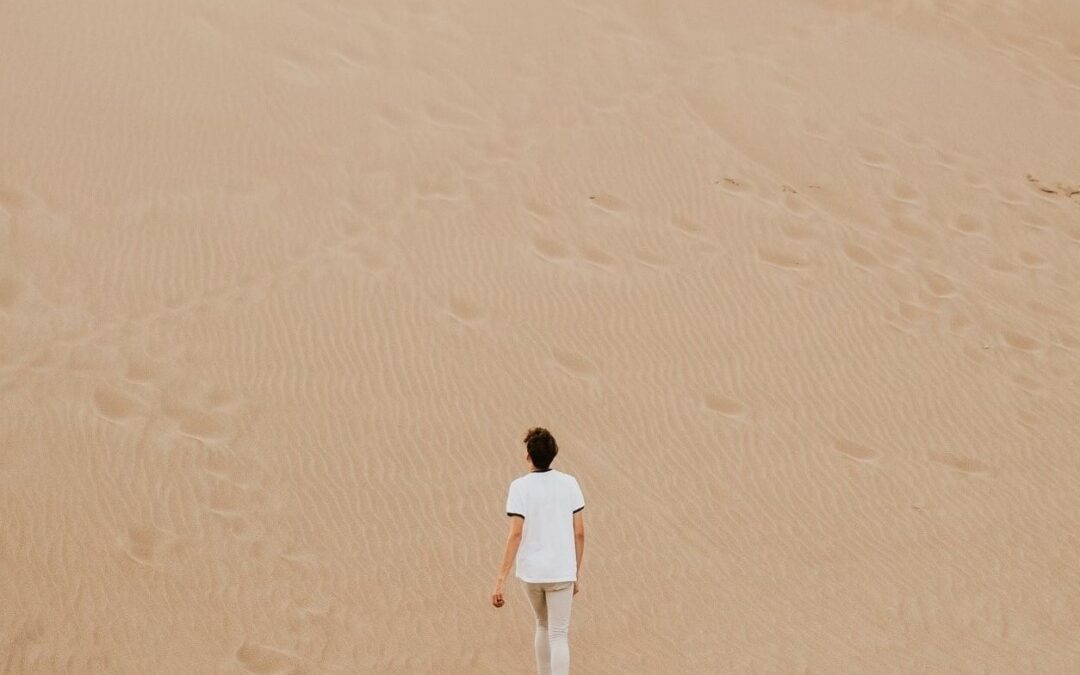“Americans are facing an epidemic of loneliness, an “underappreciated public health crisis” that needs to be brought to light, said Surgeon General Vivek Murthy in a statement last week. Even before the Covid-19 pandemic, about half of adults in the country reported measurable levels of loneliness, which can affect mental, physical and societal health.”[1] (This conclusion comes from a 2023 study reporting an epidemic of loneliness and isolation.….(Here is the link. [2] )
The report suggests that feelings of loneliness and isolation are common among young and old alike, and that the impact is both concerning and widespread. Loneliness may be associated with depression and anxiety, health challenges, poorer academic achievement and work performance….
One interesting conclusion:
Murthy writes in a New York Times opinion piece that loneliness can lead to more polarization and lessen our ability to come together to address issues like climate change and economic inequality. Per the report, trust in each other and major institutions is now at “near historic lows.” (I’ll be contemplating climate change in a future blog.)
Whether or not you experience loneliness, I invite you to reflect on people you know: they may not talk about it, but what do you observe or sense?
The experience of loneliness
What is the difference between loneliness and solitude? Here are some reflections from a poetic perspective, introduced by a comment on the theme in a Poetry Foundation issue:
“In the book Journal of a Solitude, the poet May Sarton once wrote that “Loneliness is the poverty of self; solitude is richness of self.” Poetry’s relationship to solitude is paradoxical: while many poets savor the isolation needed to write their best work, the finished product will ideally create connection, or even community.” [3]
Flood: Years of Solitude By Dionisio D. Martinez
To the one who sets a second place at the table anyway.
To the one at the back of the empty bus.
To the ones who name each piece of stained glass projected on a white wall.
To anyone convinced that a monologue is a conversation with the past.
To the one who loses with the deck he marked.
To those who are destined to inherit the meek.
To us.
(“Flood: Years of Solitude” from Bad Alchemy. Copyright © 1995 by Dionisio D. Martínez. Used by permission of W. W. Norton & Company, Inc.)
Night By Michael Hoffman
It’s all right
Unless you’re either lonely or under attack.
That strange effortful
Repositioning of yourself. Laundry, shopping,
Hours, the telephone—unless misinformed—
Only ever ringing for you, if it ever does.
The night—yours to decide,
Among drink, or books, or lying there.
On your back, or curled up.
An embarrassment of poverty.
Source: Poetry (June 2008)
Solitude
What about solitude? That isn’t likely to be a research topic, particularly in the office of the Surgeon General. But it has been a long-standing subject of human reflection…
Childhood’s Retreat By Robert Duncan
It’s in the perilous boughs of the tree
out of blue sky the wind
sings loudest surrounding me.
And solitude, a wild solitude
’s reveald, fearfully, high I’d climb
into the shaking uncertainties,
part out of longing, part daring my self,
part to see that
widening of the world, part
to find my own, my secret
hiding sense and place, where from afar
all voices and scenes come back
—the barking of a dog, autumnal burnings,
far calls, close calls— the boy I was
calls out to me
here the man where I am “Look!
I’ve been where you
most fear to be.”
Robert Duncan, “Childhood’s Retreat” from Ground Work: Before the War. Copyright © 1968, 1969, 1970, 1971, 1972, 1974, 1975
Jane Clark, in a Beshara Magazine article, offers a valuable historical perspective.
Before the 19th century, living alone was only desirable for monks, nuns, and mystics. In grief and illness, aloneness might be a choice. But the widespread loneliness in our contemporary world is, in many instances, not a matter of choice.
Valuing and seeking “aloneness” really came into play in the Western world through the Romantic movement of the 19th century. Solitude came to be valued as a source of inspiration, insight, and creativity. And aloneness also came to be associated with transcendent experiences in nature – as a source of deep spiritual experience and also, of knowing and understanding. This, of course, was already recognized within many indigenous cultures. In the words of Clark, in her article on “solitude in the modern world,” solitude may offer us the opportunity “to be in contact with ourself in its most profound depths.”
“Problems of loneliness and isolation are reaching epidemic proportions in Western societies, with significant consequences for both mental and physical health. The poet Marianne Moore famously observed that “the cure for loneliness is solitude.” But what is the difference between these two states? This article investigates the foundations of our contemporary desire for private space – of time spent alone with our own thoughts – in the spiritual vision of the Romantic poets and the American Transcendentalists. It reveals that the concept of solitude is at the very heart of modern life, from our love of nature to our ideas of social equality and democracy, and, most importantly, contemporary understanding of ‘the self.’[4]
As we are pondering the distinction between loneliness and solitude, some questions may come to mind… is the appreciation of solitude linked to personality style? (I am thinking of the Enneagram in this context…) Upbringing? Cultural context? Privilege? Or is it something many of us can learn to value and appreciate?
I leave you reflecting on your own experience and perspective – and hopefully pondering the experiences and perspectives of others you know, read about, and imagine…
[1] https://www.smithsonianmag.com/smart-news/an-epidemic-of-loneliness-threatenes-health-of-americans-surgeon-general-says-180982142/#:~:text=Feelings%20of%20isolation%20and%20loneliness,in%201990%2C%20per%20the%20report.
[2] https://www.hhs.gov/sites/default/files/surgeon-general-social-connection-advisory.pdf
[3] https://www.poetryfoundation.org/collections/101598/poems-about-loneliness-and-solitude. The poems that follow are from this source.
[4] https://besharamagazine.org/metaphysics-spirituality/solitude-in-the-modern-world/#:~:text=One%20of%20the%20most%20famous,cure%20for%20loneliness%20is%20solitude%E2%80%9D.

